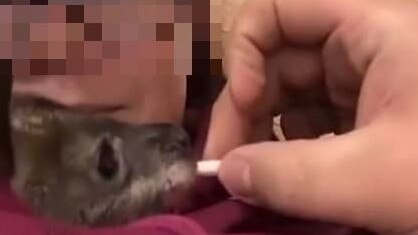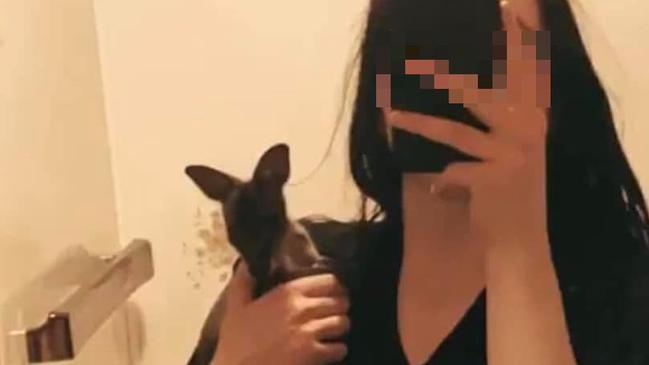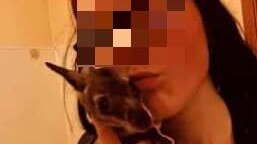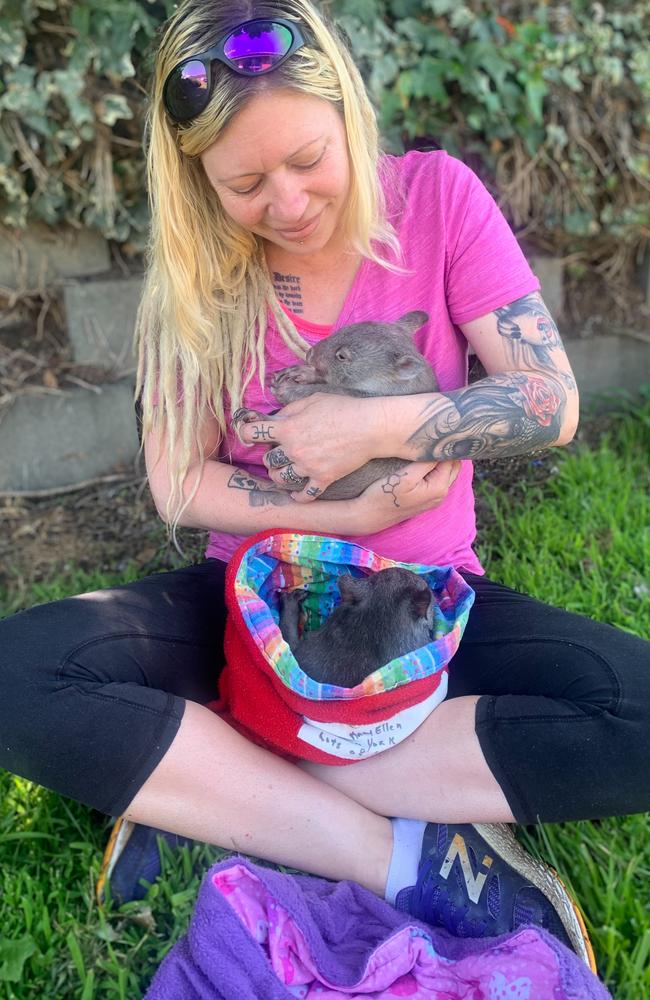Smoking joey Launceston: Video shows duo giving animal ciggie
An orphaned joey may have been in the care of a young pair for up to a month, being posed in front of the bathroom mirror and having cigarettes held to its lips. CONTENT WARNING
Launceston
Don't miss out on the headlines from Launceston. Followed categories will be added to My News.
The Mercury has obtained a copy of a since-deleted social media video of two people giving an orphaned joey a cigarette in one of their homes.
It’s understood the video was captured in Launceston in late September. It depicts a swaddled joey in the arms of a young woman, who giggles as a man outside of frame places a rolled cigarette into the joey’s snout. It is not clear whether the cigarette is lit or not.
The Mercury has identified both people depicted in the video but has chosen not to name them. One is a Launceston male in his early-20s, the other a Launceston female whose age was not immediately able to be verified.
The woman is understood to be involved in greyhound racing in the state.
The Department of Natural Resources and Environment says its Investigations and Enforcement Section has “received a complaint about the video and is investigating”.

“While it may be tempting for some people to care for an animal themselves, it is best that they are looked after by a wildlife rehabilitator with the experience, skills, capacity and appropriate facilities to rehabilitate the animal for release back into the wild,” a spokesperson said.
“Wallabies are partly protected wildlife and should not be kept as pets.”
They urged anyone who found sick or orphaned animals to contact Bonorong Wildlife Rescue, which operates a 24/7, statewide hotline.
Granton wildlife rehabilitator Christie Cook, the woman who discovered the video of the joey online, is a 20-year veteran of the animal rehabilitation sector.

She said she had been monitoring the pair’s social media accounts and believed they had the joey at least until a fortnight ago.
“I feel frustration, anger, it eats at you,” she said.
She said she is handed “one or two” joeys per week from members of the public (MOPs, in industry parlance) who had attempted to care for orphaned wildlife but seen the animal’s health continuously decline.
“They come to you to die, basically,” Ms Cook said.
That is because, by the time MOPs witness a decline in the animal’s health, it’s already too late to save them.

“People still like the idea of having a joey, kids playing with it. But it needs hydrating, toileting and proper milk, it’s not a pet,” Ms Cook said.

Another wildlife carer, who asked not to be named, said the issue was that the state government’s Department of Natural Resources and Environment had little regulatory powers when it comes to “partly-protected” species like Bennett’s wallabies, Tasmanian pademelons and common possums.
“Had it (the joey) been a devil, wombat or bettong, had it been a specialised species, NRE would have moved in immediately,” the carer said.
“Members of the public know they can keep these joeys, parade them around the supermarkets and they won’t be taken off them.”





